The Japanese Section of the Institute for Liberal Arts (ILA) held its first in-person Tanabata, or Star Festival event in three years on July 6, bringing together nearly 20 international students at the International Student Lounge on Ookayama Campus.
Tanabata, which has its origins in China, celebrates the meeting between the deities Orihime and Hikoboshi. It often involves the decoration of bamboo branches with tanzaku, or paper strips on which people write their wishes. Sharing this story with the participants was ILA Professor Hilofumi Yamamoto, who kicked off the event with a kamishibai-style* talk that included colorful pictures and lively storytelling.
- *
Kamishibai is a form of Japanese pictorial storytelling that was popular before the arrival of the television in the mid-20th century.
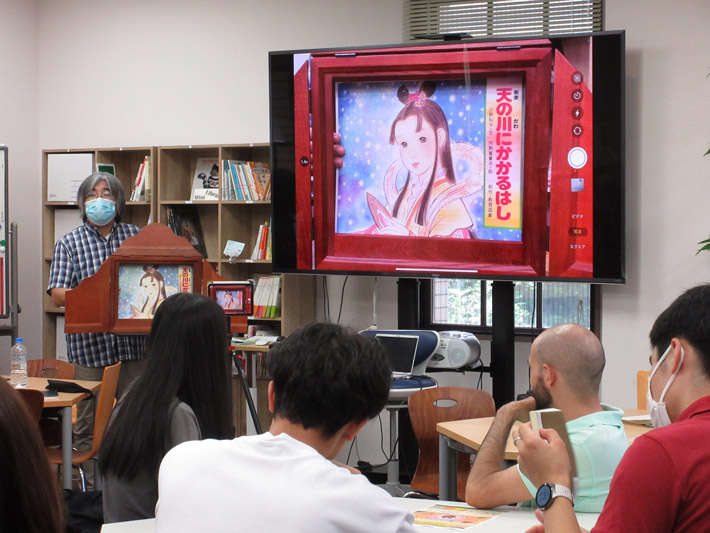
Prof. Yamamoto telling story of Orihime and Hikoboshi
After this, ILA Lecturer Midori Komatsu guided the international students in writing their own tanzaku wishes in the traditional Japanese format. While asking questions about new Japanese words and expressions, the students noted down their own Tanabata messages. Some wished for academic success, while others expressed hope for good health within their families. Yet others wished for world peace.
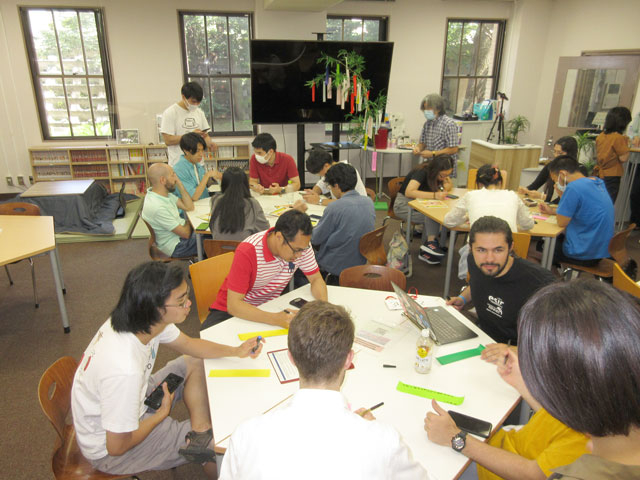
International students creating their tanzaku
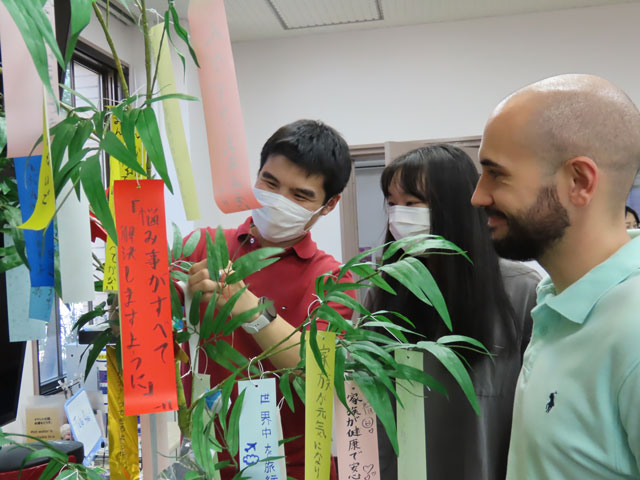
Hanging wishes on bamboo branches
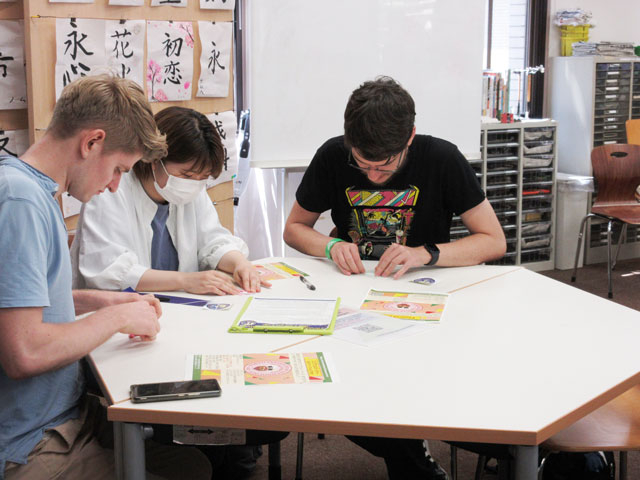
Participants working on origami
Based on models created by ILA Lecturer Mika Ebara and instructions by ILA Associate Professor Aiko Sasaki, the students then created nets, lanterns, and other decorations called sasakazari while listening to Tanabata-sama, a Japanese folk song about the Star Festival. These decorations were hung on bamboo branches together with the students’ tanzaku to complete the Japanese tradition.
Afterwards, some participants said that the playful event took them back to their childhood days. The event ended with a joyous group photo to eternalize this year’s Tanabata celebration.
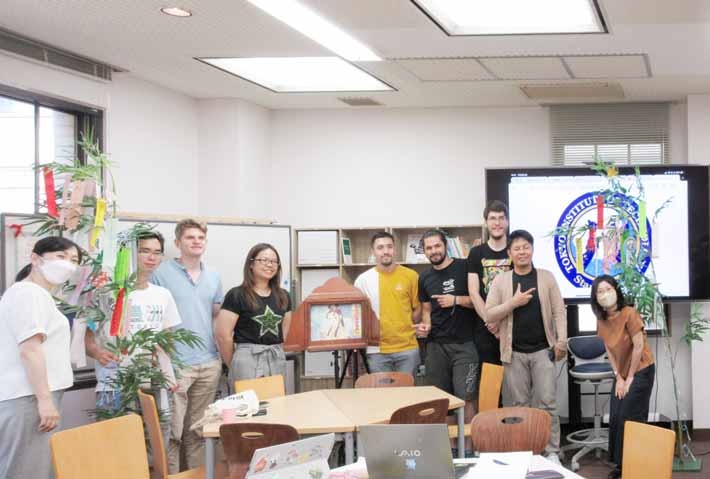
Group photo to commemorate Tanabata 2023
In addition to celebrating the Star Festival, the Japanese Section of ILA holds various events throughout the year for international students who want to learn about Japanese language and culture. Aiming to create fruitful student exchanges, the section’s events include calligraphy sessions, yoga workshops, manga and illustration festivals, Japanese-Language Proficiency Test guidance and practice sessions, and farewell parties for international students coming to the end of their stay at Tokyo Tech.








